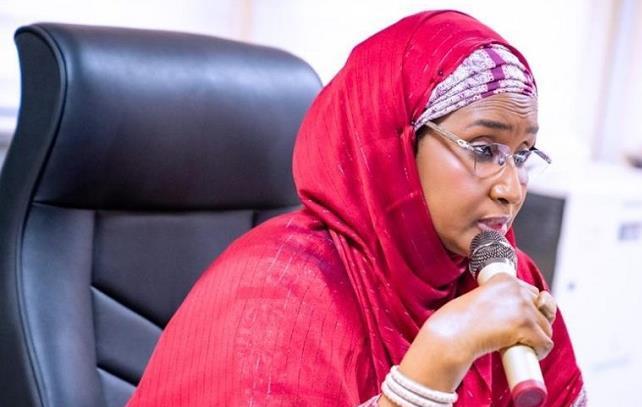Minister of Humanitarian Affairs, Disaster Management and Social Development, Hajiya Sadiya Umar Farouq, has presented the Global Rapid (Post Disaster) Damage Estimation (GRADE) Assessment report of the 2022 flood situation in Nigeria.

Farouq, in her presentation at a media conference on Friday, January 27, 2023, in Abuja, said that the report was earlier presented to President Muhammadu Buhari who approved the needed intervention to assist victims of the 2022 floods across the country.
She said the objective of the GRADE, developed by the World Bank’s Disaster-Resilience Analytics and Solutions (D-RAS) team, was to assess the economic impacts of the flood that ravaged Nigeria between June and November 2022.
According to her, the GRADE assessment gives an overview of the nature of the flood disaster and its impacts across Nigeria.
She explained that it also gave the sectoral and state-by-state effects, which were critical for planning.
The minister said that the assessment had become a vital tool to understanding the effects of the floods on people, especially the vulnerable groups and their coping capacity.
Farouq emphasised that it could also be used to identify the most urgent recovery needs and the best methods of the reconstruction of critical sector and infrastructure.
“I would like to seize this opportunity to assure all well-meaning Nigerians that the Federal Government has been responding to the 2022 flood and sending relief materials to all affected states.
“Furthermore, an abridged copy of the GRADE report was submitted to Mr President, based on which he graciously approved emergency intervention and livelihood programme for the National Emergency Management Agency (NEMA).
“Furthermore, the National Commission for Refugees, Migrants and Internally Displaced Persons (NCFRMI) will be encouraged to utilise aspects of the GRADE assessment to plan the recovery and rehabilitation of victims of the floods.
“I hereby call on all responding MDAs in federal, states and local governments to also utilise this GRADE assessment to ameliorate the plights of victims of the 2022 floods,” Farouq said.
The minister explained further that some of the key findings of the GRADE were that all 36 states and the Federal Capital Territory were affected by the 2022 floods in Nigeria, with varying degrees of damages and people affected.
According to Farouq, “this analysis estimates that the total direct economic damages, based on currently reported statistics as of 25th November, 2022, are in the range of $3.79 billion to $9.12 billion with the best (median) estimated at $6.68 billion.
“This includes damages to residential and non-residential buildings, as well as damages to infrastructure, productive sectors and cropland.
“Estimated median damages are thus generally lower than the 2012 assessment (PDNA), but some localised areas may have experienced greater impacts than in 2012, and past seasons such as 2018.
“The number of persons affected has risen over the season since June up to between 4.4 million and 4.9 million affected people as at 25th November, 2022 (around 2 per cent of the country’s population).
“In terms of destroyed and damaged buildings, there is significant damage in many states, with counting still ongoing.
“Also, significant damage to infrastructure including roads, irrigation and river infrastructure as well as WASH and electricity infrastructure.
“Damage to agricultural crops, associated water infrastructure, fisheries and livestock were also severe,” Farouq said.
Meanwhile, the Permanent Secretary in the ministry, Dr Nasir Sani-Gwarzo, in his remarks earlier said that Farouq gave approval to solicit the support of the World Bank at the peak of the flooding period in 2022 to assist the ministry to come up with an assessment.
“This is because, assessment of impact of disaster of such magnitude takes a minimum of six months of hard and diligent works and several layers of activities; we, therefore, opted for a new technology called GRADE.
“This is the first time it is deployed in sub-Saharan Africa, and of course, it is the first time it is deployed in Nigeria. The minister gave us the approval to seek for this support and fortunately the World Bank came to our assistance.
“They commission a series of Search Lights Stations across the globe, particularly in the United States and Australia that monitored our special horizons for a minimum of 14 days.
“We compared the data of what they saw at that period and the data of the six months of the raging period of the floods and they came up with these results,” Sani-Gwarzo said.
By Collins Yakubu-Hammer
